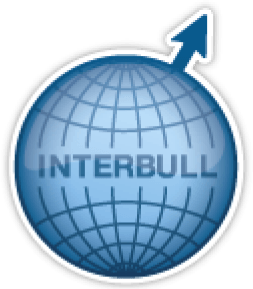

MACE is the acronym for Multiple Across Countries Evaluation. It was first developed in Canada by Prof. Larry Shaffer in 1994 and improved ever since. It is applied to compute international breeding values of proven bulls for six breeds on seven economically important trait groups (milk production, udder health, conformation, longevity, calving, female fertility and workability traits).
MACE combines information from each country using all known relationships between animals, both within and across populations. It has two major advantages over other methods:
- Use of all known relationships between animals
- Genotype by environment interactions
MACE accounts for the possibility of animals re-ranking between certain countries. This occurs when animals perform better in certain environments than they do in others or when genetic evaluation methods differ between countries. For this reason, a separate set of results is calculated for every participating country.
An individual list of international genetic merits is provided to each participating country, expressed in their own units and relative to their base group of animals. This accounts for the possibility of sires re-ranking between countries due to environmental differences, or where genetic evaluation methods differ between countries. Each participating country receives the genetic merit for all animals sent to the evaluation, whether or not they have daughters in that country.
Specific countries can then identify sires from around the world that will perform best under their conditions. Interbull calculates breeding values on the different country scales but does not rank sires.
Participating countries are responsible for ranking and publishing sires using their own breeding objectives.
Thanks to MACE individual countries are able to identify those animals from around the world that will perform best under their own unique farming conditions.


- Across-country measures of genetic merit of individual dairy traits.
- Enables calculation of breeding values for foreign bulls and ability to compare sires across countries.
- Increases accuracy of breeding values for foreign bulls on national scales.
- Enables comparison of local bulls and imported bulls directly on national scales.
- Improving national breeding programs by broadening the available gene pool.
- ICAR membership.
- A signed contract and signed Service Agreement with Interbull Centre.
-
National genetic evaluation for any of the populations and traits evaluated by Interbull.
- The first trait group to be joined is always “Production”.
- Maintenance of correct national genetic evaluation methods: Conventional Validation Tests completed and passed.
All countries participating in the International Bull Evaluation Service “MACE” pay:
- A fixed Basic Fee of €4 325.
For a country with more than one data provider for MACE services, the Basic Fee is calculated using a 10% multiplier (€4325 x 10%= €433) that is added for each additional data providing organisation.
- A Variable Fee based on the “5-Years Increase in Milk Daughters” or the “Number of Milk-Recorded Cows” (for new countries)
- Countries will first join the Trait Group “Production”. This includes the traits “Milk Production”, “Protein content” and “Fat content”.
-
The annual service fee for countries joining MACE for this Trait Group is based on:
- A fixed base fee: €4325
- A variable service fee, depending on the number of “5-Years Increase in Milk Daughters” or the “Number of Milk-Recorded Cows”
- Production: milk yield, protein & fat
- Conformation: body condition score, locomotion, stature, udder support + 34 other traits
- Udder Health: somatic cell score & mastitis
- Longevity: direct longevity
- Calving: direct and maternal calving ease, direct and maternal stillbirth, direct gestation length
- Female Fertility: heifer conception, interval, cow recycling & lactating cow ability to conceive
- Workability: milking speed & temperament

